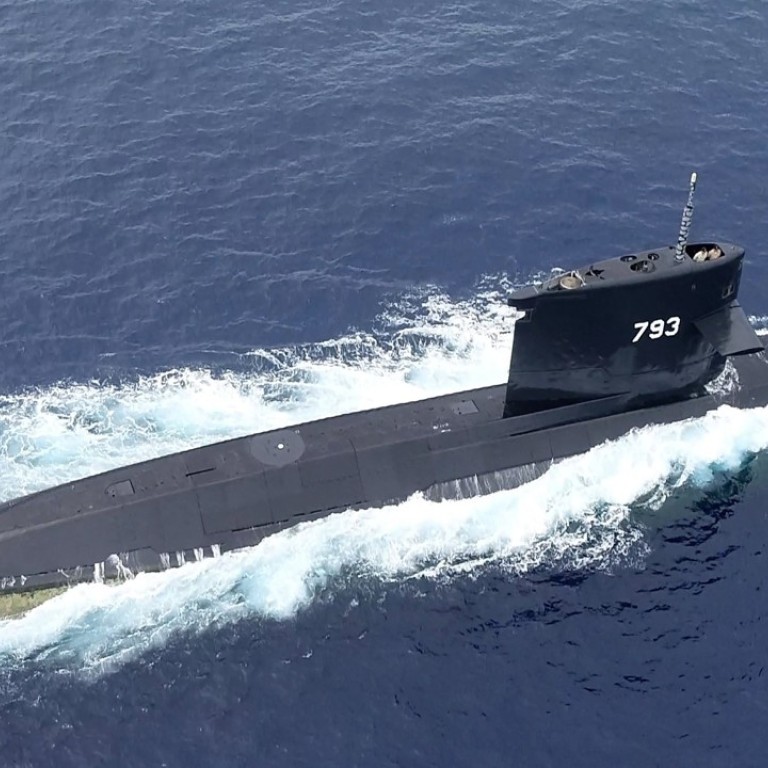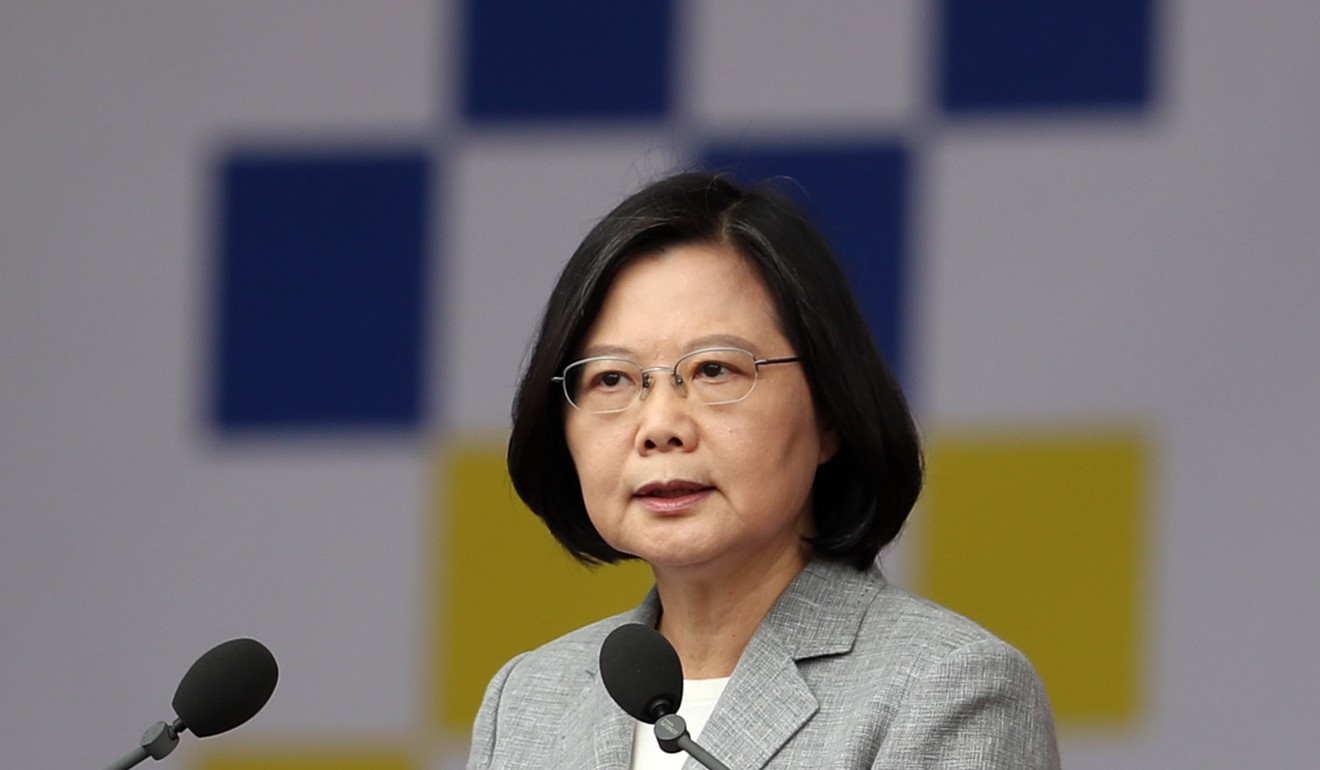
Taiwan responds to Beijing threats with pledge to increase military spending to ‘ensure national security’
In a move certain to provoke Beijing, Taiwan announces three-point plan to safeguard sovereignty of the self-ruled island
Taiwan plans to acquire more weapons to increase its fighting power in the face of growing military threats from Beijing, a move certain to further provoke the mainland amid the escalating trade war and military tensions between China and the US.
The self-ruled island’s defence ministry announced new spending plans on Wednesday which it said were intended to echo President Tsai Ing-wen’s national day pledge to safeguard Taiwan’s sovereignty.
“In addition to building our indigenous submarines and warplanes, [we] will take swifter actions to acquire new weapons and armaments in order to quickly increase our defence power,” it said.
The defence ministry statement said there were three ways for the military to safeguard the sovereignty of the self-ruled island, ensure the security of its 23 million people and maintain stability in the region.
“They include increasing the national defence budget to ensure national security, promoting indigenous defence to help develop the national defence industry, and ensuring the best welfare for military personnel to achieve the success of our conscription system.
“In the future, we will increase our defence budget every year and in the event of purchases of crucial weapons, the ministry will prepare special budgets,” the defence ministry said.
‘I will make Taiwan indispensable’ says President Tsai Ing-wen in national day address
The military has listed an NT$346 billion (US$11 billion) budget for 2019, up NT$18.3 billion (US$588 million) from last year.
A total of NT$73.6 billion (US$2.3 billion) will be allocated from the 2019 budget for the construction of indigenous weapons, creating huge business opportunities within the island, according to the defence ministry.
The Pentagon’s Defence Security Cooperation Agency last month announced plans to sell Taiwan spare parts and logistics support for F-16, C-130 and F-5 indigenous defence fighter jets.
It will be the second US weapons deal under Trump, after his administration in June last year agreed to sell a US$1.4 billion arms package to Taiwan that included high-speed anti-radiation missiles, torpedoes, missile components and technical support for early warning radar.

In her national day address, Tsai echoed last week’s harsh criticism of Beijing by US Vice-President Mike Pence, lambasting the mainland as the cause of cross-strait tension and conflicts in the region.
“For some time now, China’s unilateral diplomatic offensive and military coercion have not only harmed cross-strait relations. They have also seriously challenged the status quo of peace and stability in the Taiwan Strait,” she said.
Tsai said there was a need for Taiwan to fortify its national security by upgrading its national defence capabilities.
“Our military strategy is resolute defence and multi-domain. Its core value lies in upgrading the ROC military’s capabilities. As I have said before, as long as I am president, our national defence budget will grow steadily every year.
“Our lean and combat-ready troops absolutely have the ability to defend Taiwan’s sovereignty,” she said.
Beijing, which considers Taiwan a wayward province which must return to the motherland by force if necessary, suspended official talks with Taipei when Tsai became president in May 2016.
Since then, it has stepped up pressure on the island to try and force Tsai to accept the one-China principle, persistently staging a series of war games around the island, and poaching five allies from Taiwan.
On Wednesday, the US State Department urged Taiwan and China to engage in constructive dialogue and seek a peaceful resolution to their differences.

